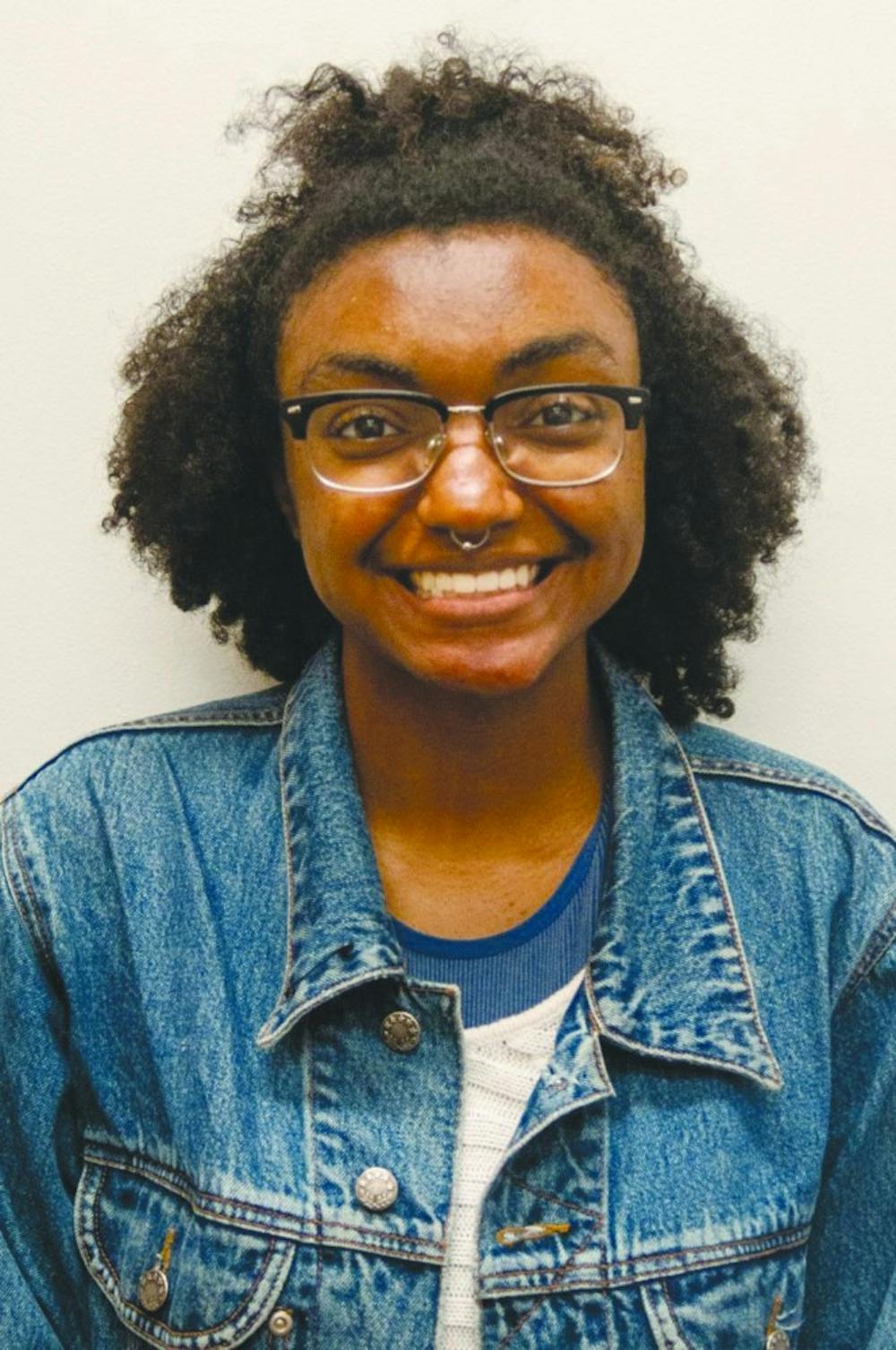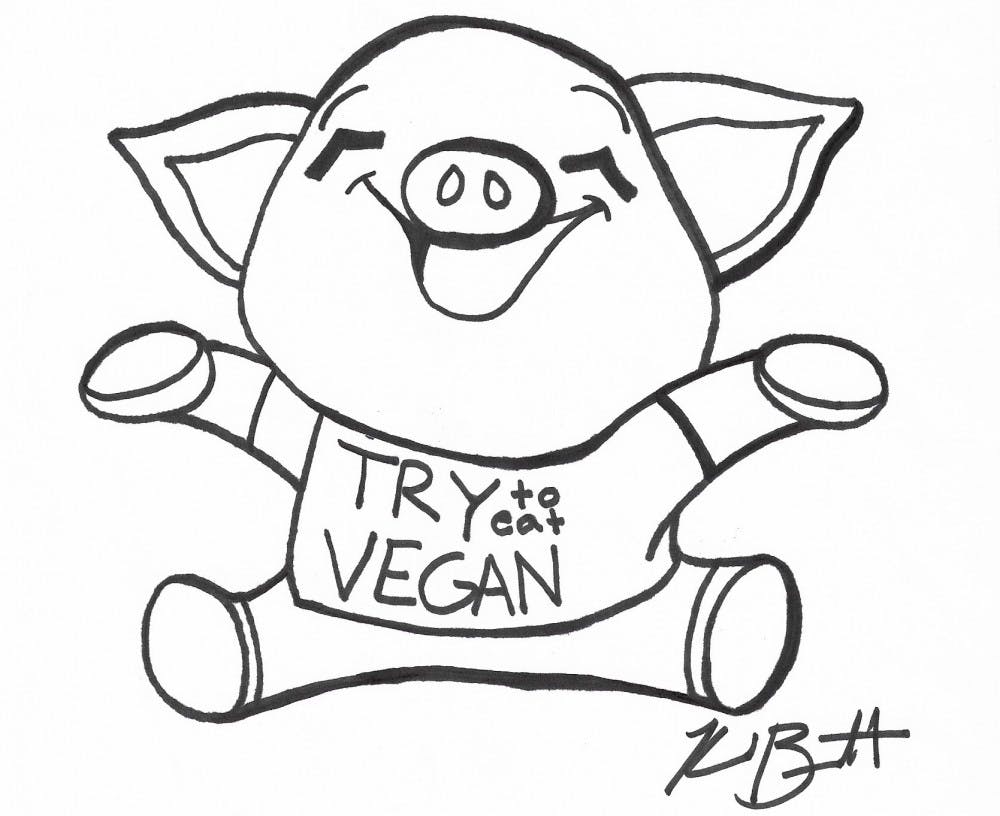
Kennedi Barnett is a junior journalism news major and writes "Kennedi’s Kaleidoscope" for The Daily News. Her views do not necessarily agree with those of the newspaper. Write to Kennedi at kpbarnett@bsu.edu.
I do not care that you are not a vegan.
When I tell you I am vegan, I am not telling you because I want to convert you or force my dietary decision onto you. Frankly, I do not care if you eat meat. It’s the amount of meat that bothers me, and honestly, it should bother you too.
When I was a kid, I knew my parents got a good paycheck when we ate steak, and every Sunday, without fail, we ate chicken. My childhood was filled with feeling sick because I ate too much cheese or having major headaches after consuming something overly processed. That's America's food culture. We eat like we have affordable health care, we die at 70 and get confused about why everyone seems to always be sick.
I was a vegetarian for three years before I decided to be a vegan, and even now, I have my days where I accidentally eat something with cheese or gelatin.
No one is perfect, and it is so easy to slip up or make mistakes when you are making major dietary changes. But it is the effort that counts. Other vegans may disagree with me or call me a “soft vegan” for not being “as vegan” as they are, but the fact that I am dedicating time to make a change in my life for the betterment of my body and the world is what matters the most.
We cannot get everyone to stop consuming animal products, especially people who eat meat for religious and cultural reasons, but your decision to eat meat doesn’t necessarily affect me. It does, however, affect the planet and your body.
I know it gets aggravating hearing veganism in terms of the environment, but it’s true. Eating less meat and dairy will have a massive impact on the planet. It takes 460 gallons of water to produce ¼ pound of meat. Animal agriculture is a major contributor to climate change, and the planet is dying, so why not do something to help?
No matter political or religious beliefs, I think we can all agree that if there is not a change soon, there will be an extreme lack of resources. And because the wealthy have the majority of this nation's money, students and lower-income families will be the first to suffer. And we see this reality every time there is a national disaster. People, especially the working class, are still dealing with the damage from Hurricane Katrina. There are still damaged roads, increased flood insurance and lack of care in impoverished communities.
In regards to your body, dairy is almost unnecessary in your everyday diet and does more harm than good. Most of the meat you are consuming is actually toxic and processed. Meat consumption contributes to heart disease and some cancers.
If we want to be healthier as a nation, we need to start with plants. Not just eating plants, but also buying them, growing them and supporting local farmers and plant-based food companies.
As I said, the goal isn’t to convert everyone to veganism. Although that would be ideal, lowering your meat and dairy consumption or even having two vegetarian days a week could have a massive impact on the world and your body.
I know veganism can look scary, but it is not impossible. When we think vegan, we think about never eating and spending lots of money on vegan food. While being a vegan can be expensive, it is no more expensive than any other diet.
Fast food places like Burger King, McDonald's, Qdoba, Chipotle, KFC, Chick-fil-A, Denny’s, iHop and Taco Bell all have affordable, and sometimes cheaper, vegan and vegetarian meals. You can also request your food to be cooked without egg or animal fat at many restaurants. All you have to do is ask.
There are plant-based brands at Target, Walmart, Aldi and Payless right here in Muncie. Some of my favorites include Silk, Daiya, VEGA, Beyond Meat, Tofurky, Gardein and Morningstar, all of which are affordable.
And of course, it takes some time to get used to. When I first started, I only ate potatoes, fruit, vegetables and refused to eat out. Now, I am constantly finding new places to eat out and different plant-based brands.
Why limit yourself when there are so many options? Change can be unnerving but the goal is not to make everyone vegan. The goal is to promote a healthier lifestyle, to endorse better living and higher quality foods and to save the planet.





